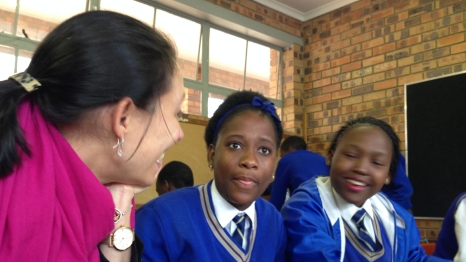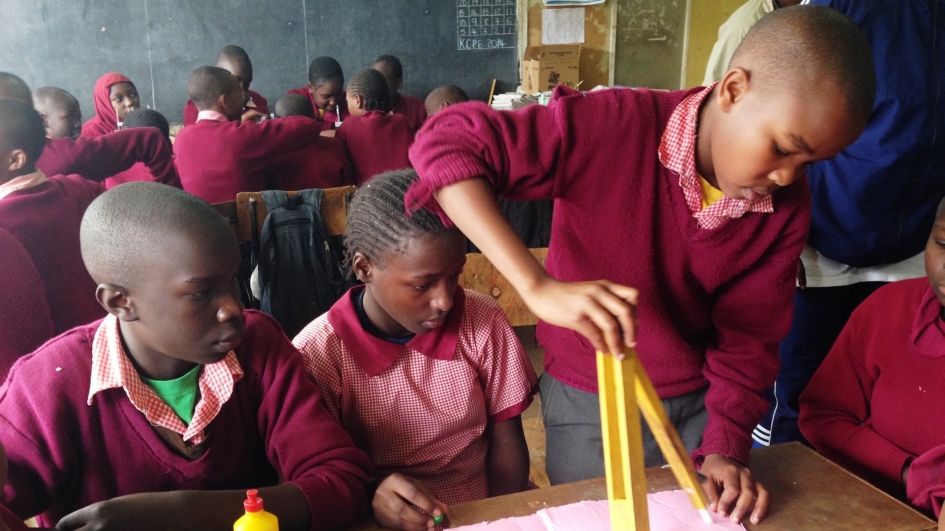
»With Experimento, traditional knowledge can be transferred and combined with modern teaching methods.«
Scientific Learning – traditionally and for the future
On the right track

Traditional knowledge paired with modern teaching methods
The fact that this future-oriented method would also draw upon and convey traditional knowledge was the focus of a conversation between Nathalie von Siemens and Keith Roy Langenhoven, Director of the School of Science and Mathematics at the University of the Western Cape (UWC). Indigenous knowledge – local, usually traditional knowledge about medicine, agriculture, religion or rites – plays a large role to this day in many regions of Africa, but is falling more and more by the wayside. With Experimento, this traditional knowledge can be transferred and combined with modern teaching methods, and water filtration provides a good example: A cut-off piece of sugar cane served not only as a conventional drinking straw, but also as a traditional method for water treatment. When drinking from pooling basins and streams, particles stick to the fibers of the sugar cane and are filtered out, thereby achieving a purifying effect on the water. A similar principle of water filtration is explained in the scientific experiment from Experimento I 10+. By using sand, coal, paper, or certain membrane filters, water can be purified to varying degrees. Embedding indigenous knowledge in the lessons creates a bridge between the cultural identity of learners and the practical implementation of the natural sciences.
Experimento doesn’t only connect conventional wisdom with modern teaching; it also supports interdisciplinary knowledge. The Mthatha Excelsior High School, for example, is a public secondary school in Eastern Cape, South Africa. The young 10th graders in a physics class are concentrating on their work with Experimento I 10+ on the topic of “water as a thermal store.” It is about water’s solid, liquid, and gaseous states of matter. Sixteen-year-old Zola reports eagerly, “I know this already from chemistry class.” This is how students are encouraged to transfer their knowledge.
Key to impact-oriented education
In addition to discussions that brought partners closer together and fostered an exchange on the substantive development of Experimento, a dialog with educational experts was at the forefront of the trip through South Africa. One of the central questions in conversations with Dr. Jonathan Clark, an education researcher at the University of Cape Town and director of the university’s School Improvement Initiative (SII) and Schools Development Unit (SDU), was identifying which structural measures were relevant for developing long-term and sustainable impact-oriented educational processes. His motto: efficient school management is the key to successful educational development in South Africa! School management includes all efforts that contribute to the organization and optimization of the school and school-related processes. That includes central aspects such as leadership, development of lessons and the school, addressing conflicts and problems, possibilities for human resource development, administration and organization as well as functional workflows and the allocation of resources. “Successful school management is not just a crucial task in South Africa, but in every country today. The conditions for that are different for each country and the implementation is different for each individual school, but the decisive questions are the same for every school: how can we organize our school to create an ideal environment for our educators? And how do we achieve optimal learning and developmental conditions for our pupils at the school? These questions are being addressed by experts and practitioners in South Africa, Germany, and Latin America all the same,” reflected Nathalie von Siemens on her trip to Cape Town University after an experience-rich week in South Africa.
October 2017
Would you like to learn more?
Websites
- Programm Experimento
- Experimento in Südafrika
Downloads
- Experimento in Südafrika


